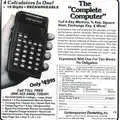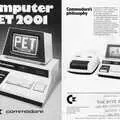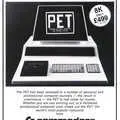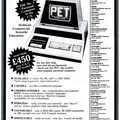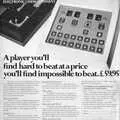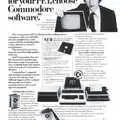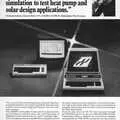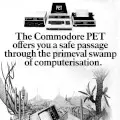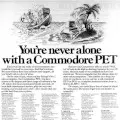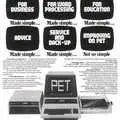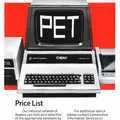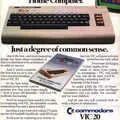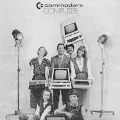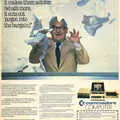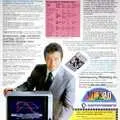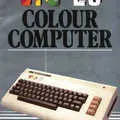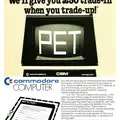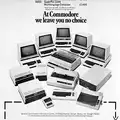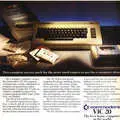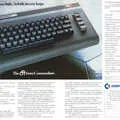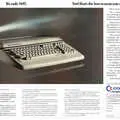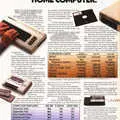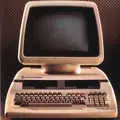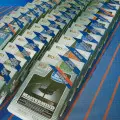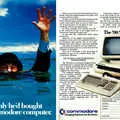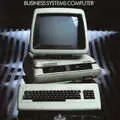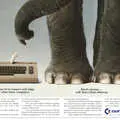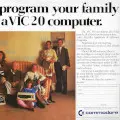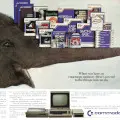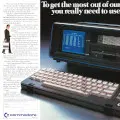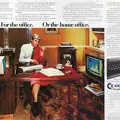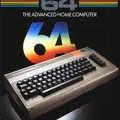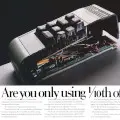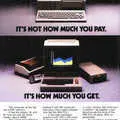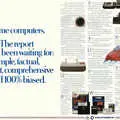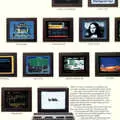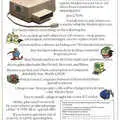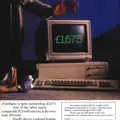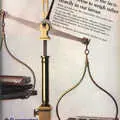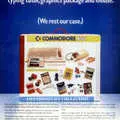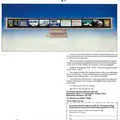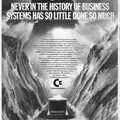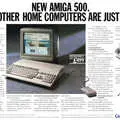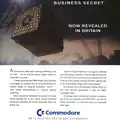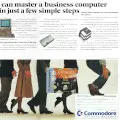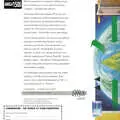
Commodore Advert - 1974
From Magazine
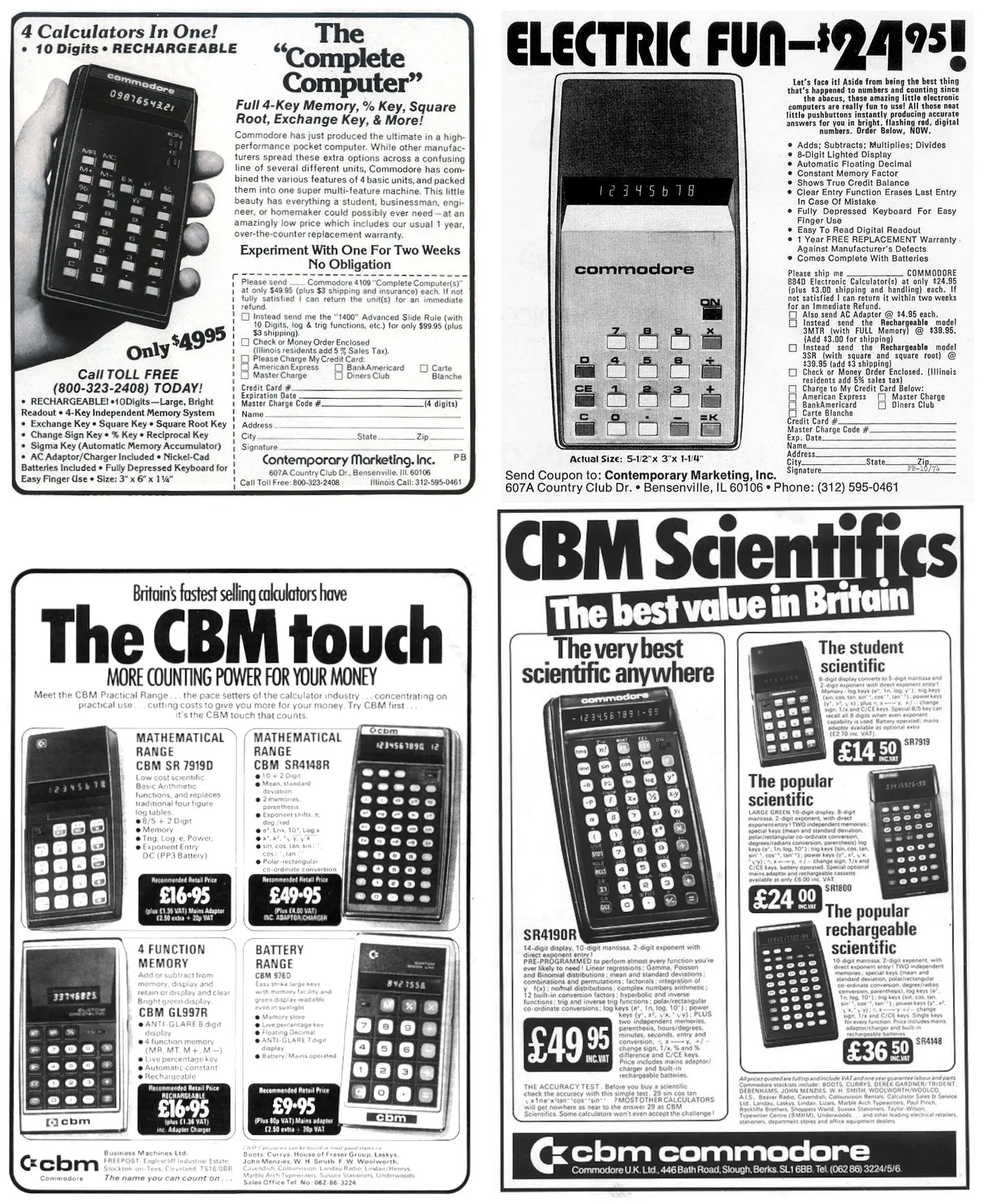
Four Calculators in One - The Complete Computer!
This is one of a small set of adverts from before 1975 - the dawn of microcomputers - which help set the scene.
From back in the day when a calculator could cost a week or two's wages comes a few adverts for Commodore calculators, dating from 1974 to 1976.
Commodore 4109: The Complete Computer
The first is for Commodore's 4109 calculator, sold in 1974.
Whilst its functions might seem basic by modern standards, its compact size and functions would still have been quite impressive to the average person on the street - the first truly "pocketable" calculators had only been on the market for a year or two.
The novelty of pocket calculators, along with the sheer expense (this would be about £530 in 2026 terms), meant that the offer to "Experiment with one for two weeks. No obligation" was probably neccessary in order to get people interesting in owning one.
Also, the headline "The complete computer" was probably not a bold claim that this calculator was as good as a DEC PDP-11 in your pocket, but more likely a reference to the fact that the position of calculating numbers for a company in the days before electronics was known as being a "computer".
Commodore 884D Calculator: Electric Fun for $24.95!
At about half the price of the contemporary Commodore 4109 calculator, the next advert features the four-function 884D, also released in 1974, which could be considered to be quite the bargain, retailing at $24.95, or about £310 in 2026 money.
Although you can't tell from the advert, this calculator was one of the Commodore range that went with patriotic red, white and blue keys. The text of the advert is also mildly amusing:
"Let's face it! Aside from being the best thing that's happened to numbers and counting since the abacus, these amazing little electronic computers are really fun to use! All those neat little push buttons instantly producing accurate answers for you in bright, flashing red digital numbers. Order below. NOW".
Britain's fastest-selling calculators have the CBM touch
In 1975 Commodore was still primarily a calculator manufacturer - along with LED watches and Chess machines, amongst other sidelines - having evolved from the office furniture and typewriter-repair business started by Jack Tramiel in Canada in 1958.
The mid 1970s were a bit of a boom time for calculator manufacturers, and competition was fierce, but trouble was on the horizon.
Many manufacturers relied on Texas Instruments for their parts, but after TI entered the calculator market, prices for calculators crashed - because TI made the chips, it could afford to sell its finished product for less than it charged everyone else for just the components.
Commodore would soon decide that the only way to survive was to purchase its existing chip supplier, MOS Technology.
This would give it good vertical integration, like TI, and enable it to ride out the price wars of the era - at least until calculators became utterly commoditised and Commodore, along with almost every other manufacturer, bailed out of the business by 1981.
The other group of calculators advertised here includes the CBM SR4148R from 1975 - one of Commodore's legendary "button monsters" with 48 individual keys.
It retailed for £49.95 plus £4 VAT, which is about £720 in 2026 terms.
CMB Scientifics - The best value in Britain
The final advert, from 1976, also features a "button monster" - the 49-button SR4190R.
The face-value price hasn't changed since 1975, although that price now includes VAT, plus the high inflation at the time means that they're relatively quite a bit cheaper than 12 months before, at £540 in 2026 terms.
This was the year that Commodore actually acquired MOS Technology - the maker of its calculator chips and the company that had already produced the 6502 processor.
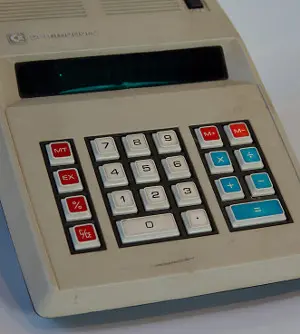
Commodore's US*5M calculator, clearly showing the same keys as used on the original PETA requirement of this purchase was the inclusion of Chuck Peddle, the co-designer - alongside Bill Mensch - of the 6502 processor, as well as the KIM-1 microcomputer board used to demonstrate it.
In one version of events it was Peddle who persuaded Commodore's CEO Jack Tramiel that the company should focus on computers and that calculators were a dead end. The next step would be the launch of the Commodore PET in 1977.
Some of Commodore's US* series of desktop calculators that came out around this time neatly show the transition from electronic adding machines to computers - the US*5M has exactly the same keys as would be used on the first PET model, the 2001.
Commodore became legendary for this recycling of parts: the VIC-20 was in part a solution to a stockpile of VIC chips that were envisaged for games machines but didn't sell, and its limited memory was due to using up a large stockpile of 1Kbit Static RAM chips, instead of more useful 4K chips.
Date created: 01 July 2012
Last updated: 07 October 2025
Hint: use left and right cursor keys to navigate between adverts.
Text and otherwise-uncredited photos © nosher.net 2026. Dollar/GBP conversions, where used, assume $1.50 to £1. "Now" prices are calculated dynamically using average RPI per year.
